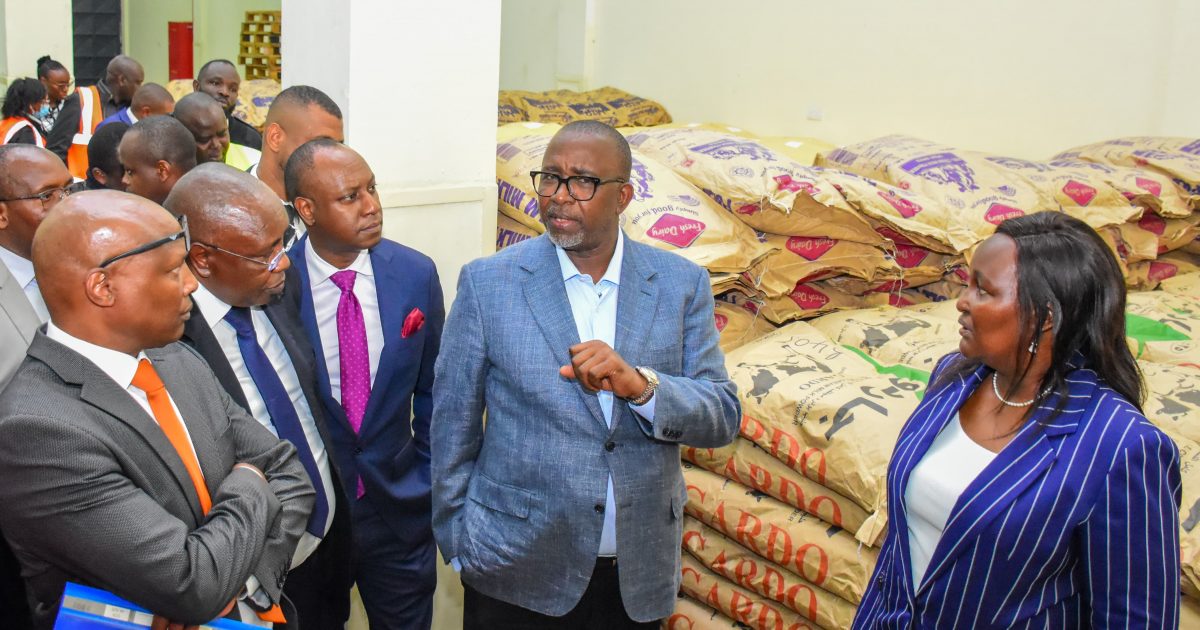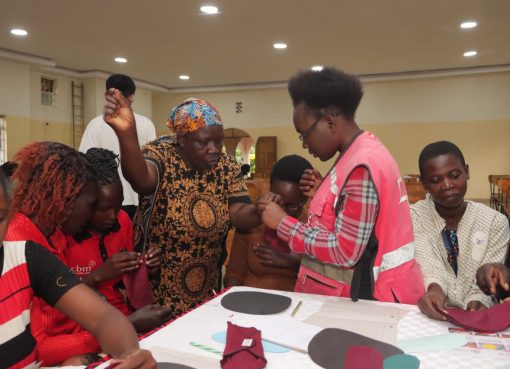The government has confiscated illegal powder milk worth Sh150 million, Agriculture Cabinet Secretary (CS) Mithika Linturi has said.
Linturi said that on this consignment alone, the government is losing Sh52 million worth of taxes, which could have been collected if the milk would have gone through the legal importation process.
Addressing the press at the Kenya Revenue Authority (KRA) warehouse in industrial area, the CS explained that the destination of most of the milk is not known, same as its quality, thus posing a danger to the lives of Kenyans should such illegal products find their way into the market.
“The confiscated illegal milk is being held at various KRA warehouses under heavy security, I want to assure Kenyans that there is no way that the milk will find its way into the market under my watch and that of the multi-agency team,” said Linturi.
The CS commended the multi-agency team, which was formed to deal with the proliferation of illegal milk in the Kenyan market for their stellar performance.
“I would like to thank the team that led the operation including the Kenya Dairy Board (KDB), Kenya Revenue Authority (KRA), Directorate of Criminal Investigations (DCI) and the National Intelligence Service (NIS) for the good job which has led to the confiscation of the illegal milk products,” he said.
The CS said that unscrupulous business people are taking advantage of some parts of our border, which are porous to smuggle illegal powder milk and other essential food items into the country which poses serious health risks to the people.
The CS said that several people have been arrested in connection with the illegal consignment with some already taken to court and released on bonds of Sh200, 000.
Linturi said that once the court processes are over, they will call members of the public to witness the destruction of the illegal powder milk.
“We need to further enhance enforcement measures to ensure that we do not allow illegal products getting into the country,” said Linturi.
The CS said that there is need to ask difficult questions as to why milk from neighboring countries like Uganda and Tanzania is finding its way into the country.
“We must as a region look at our tax regime so that we do not create an opportunity for illegal products to get into any of the countries because probably the legal regime that is in existence is in favour of the unscrupulous traders,” said Linturi.
The CS highlighted that the Bottom-Up Economic Transformation Agenda (BETA) recognizes the dairy value chain as one of the key transformation pillars which will stimulate the country’s economy.
Linturi said that the livestock department at his ministry is working day and night to ensure that the target for increased milk productivity is achieved.
“We are working to see that farmers benefit from the sale of their milk and as a government we will not allow anyone to bring in illegal milk products into the country which is likely to distort the markets and lead to lower prices for farmers,” said Linturi.
He explained that President Dr. William Ruto recently asked the New Kenya Cooperative Creameries (KCC) to pay farmers Sh.50 per liter of milk.
“Towards ensuring that farmers get good returns, last year and up to now we have a waiver, which allows for duty free importation of products used in the production of animal feeds, which include Yellow Maize, Soya and others and this is aimed at lowering the cost of feed production so that farmers can be able to produce milk at a cheaper price,” explained Linturi.
By Joseph Ng’ang’a





